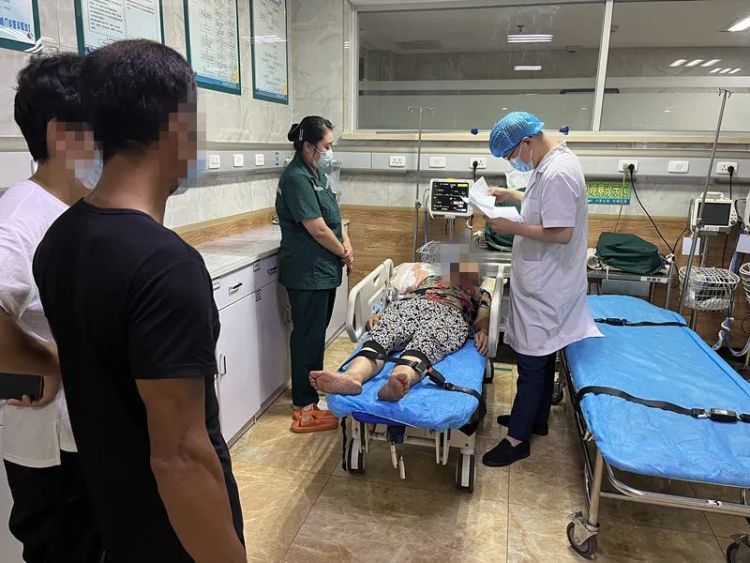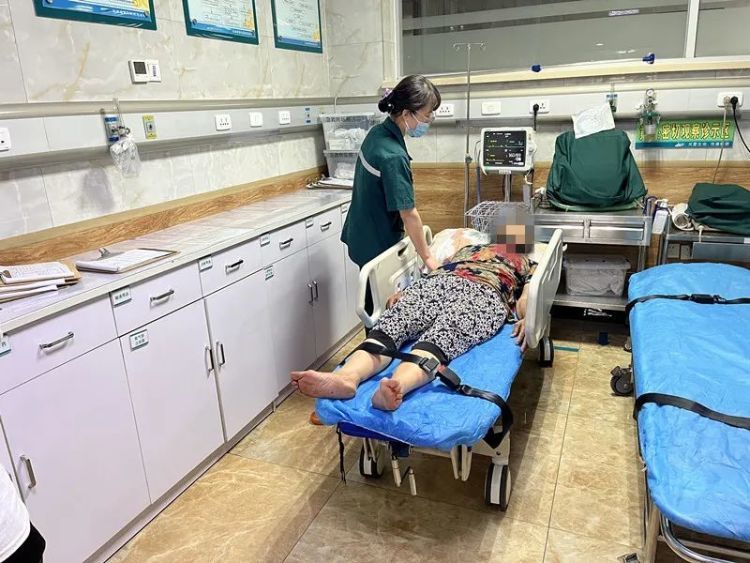For the past few days, the continuous rainy days in Liaoning
provided a good environment for the growth of wild mushrooms
.
There are many kinds of mushrooms with similar shapes,
poisonous mushrooms and non-toxic mushrooms,
lack of effective identification methods,
depending on personal experience indistinguishable.
Since the beginning of July,
mushroom poisoning incidents have occurred frequently,
Dalian Wafangdian Third Hospital,
has been continuously More than a dozen cases of
due to mushroom poisoning were admitted to the hospital,
all had symptoms such as nausea, vomiting, diarrhea, and abdominal pain after eating mushrooms
.
p>
The liver and kidney function tests were severely damaged.


Case 1
The 69-year-old Mr. Yan ate wild mushrooms picked in the mountains the night before he was admitted to the hospital. He developed abdominal pain at 3 am in the middle of the night, with paroxysmal cramps, accompanied by diarrhea, nausea, vomiting and other symptoms. He realized that he might have been poisoned, and immediately rushed to the local hospital for treatment. A kidney function test showed abnormal serum creatinine. The local hospital saw that the patient was in critical condition and immediately referred him to Wafangdian Third Hospital for treatment.
When the patient was sent to the emergency department of the hospital, he had muscle spasmodic pain, chest tightness, palpitations, shortness of breath, and soy sauce-colored urine. Considering the rapid progress of the poisoning disease, he was immediately admitted to the Department of Critical Care Medicine.
After repeated communication with family members, the director of the department and the general medical staff continued to guard the patient’s side, and they performed symptomatic treatment such as plasma exchange, hemoperfusion, and hemofiltration for the patient. At present, the patient’s condition has been effectively controlled , turning the corner.
Case 2
Mr. Bi, 62 years old this year, ate wild mushrooms picked from the mountain at lunch three days before admission. He had diarrhea at night, accompanied by Abdominal cramps, nausea, vomiting and other symptoms, the pain can be relieved after vomiting and diarrhea, but the whole body is weak and short of breath. For further diagnosis and treatment, Mr. Bi, accompanied by his family, rushed to the hospital for treatment. Gastroenterology.
After being admitted to the hospital, I learned that Mr. Bi took less medication, and the onset period was three days away. His condition did not deteriorate further, so he was given conventional treatment. It is still under further observation and monitoring and can be discharged from the hospital immediately.
Doctor reminds
The incident of poisoning caused by mistakenly ingesting poisonous mushrooms occurs from time to time. The department will treat some patients with poisonous mushroom poisoning every year. in July-September.
There are 7 clinical types of common mushroom poisoning, namely acute liver damage type, acute renal failure type, rhabdomyolysis type, gastroenteritis type, neuropsychiatric type, hemolytic type and photosensitive dermatitis type. In addition, it can also cause damage to other system organs.
At present, there is no specific treatment for poisonous mushroom poisoning in medicine, and eliminating the toxin as soon as possible is the best choice for a precious opportunity for treatment. Therefore, once you eat poisonous mushrooms and cause poisoning, you must go to a regular hospital for treatment as soon as possible. The sooner you treat it, the better your chances of recovery, otherwise serious consequences are likely.
Not picking or eating wild mushrooms is an important way to avoid mushroom poisoning.
Mushrooms should be purchased through regular channels and at regular vegetable stores. Always be vigilant about mushroom poisoning. Once symptoms appear, go to a regular hospital immediately.
When seeing a doctor, try to bring the remaining mushrooms with you, or describe the characteristics of the mushrooms you eat in detail, so that the doctor can make a quick diagnosis and timely symptomatic treatment.